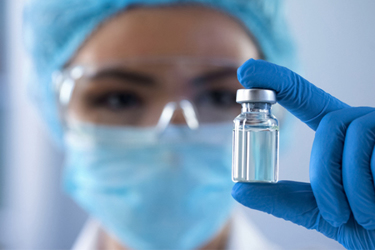Improving Allogeneic Workflow And Cell Proliferation Using CTS OpTmizer Pro SFM

T cell therapy presents immense promise as a treatment for a multitude of diseases. However, a 2019 review on the clinical responses following T cell therapy presents some diseases as being much more challenging than others to successfully treat [1]. Immature T cells have the potential to differentiate into effector cells that can attach to and kill cancer cells. Hence, appropriate levels of T cells often correlate to a healthy immune response. Typically, diseased patients present lower CD8+ cytotoxic T cell numbers and high variability in the size of the central memory T (TCM) cell populations [1]. Differences in T cell characteristics often translate to lower-efficacy treatments. Recent focus has been on the variability and importance of having robust young (TCM) populations for efficacious therapies.
Over the years, research results have demonstrated that infusion of the less differentiated cells correlates with higher-efficacy T cell therapies, due to the superior engraftment, persistence, and antitumor immune response conveyed by these younger T cell types [2]. Data indicate that production of a higher TCM count from healthy donors supports and has the potential to improve efficacy.
The transformative potential of activating and expanding healthy donors’ T cells will have a significant impact on future cell therapy–based treatments for a spectrum of diseases. With this in mind, a next-generation T cell expansion medium, Gibco™ Cell Therapy Systems™ (CTS™) OpTmizer™ Pro Serum Free Medium (SFM), was designed to support robust T cell growth and provide a stronger immune response for allogeneic workflows. Based on our recent study, CTS OpTmizer Pro SFM shows potential to promote strong T cell proliferation, maintain TCM phenotype, and allow for higher-level cell production of interferon gamma (IFNγ) with healthy donor cells utilized in the longer allogeneic workflow applications.
This application note outlines the capabilities of CTS OpTmizer Pro SFM compared with a control medium in both diseased patients’ and healthy donors’ cells. CTS OpTmizer Pro SFM was tested with cells from six healthy donors in an 18-day expansion workflow, as well as from nine diseased donors in a shorter 10-day workflow to mimic a typical autologous workflow. Diseased and healthy donors’ T cells in both workflows were evaluated for proliferation in terms of expansion and the memory cell phenotype markers CD62L, CCR7, and CD27. Following induced T cell activation, healthy donors’ cells were additionally evaluated for production of IFNγ.
Get unlimited access to:
Enter your credentials below to log in. Not yet a member of Cell & Gene? Subscribe today.
